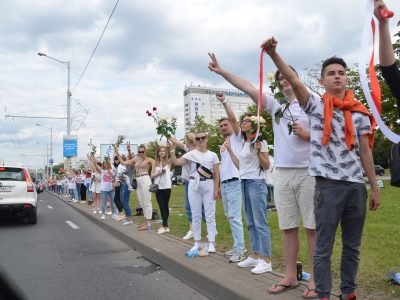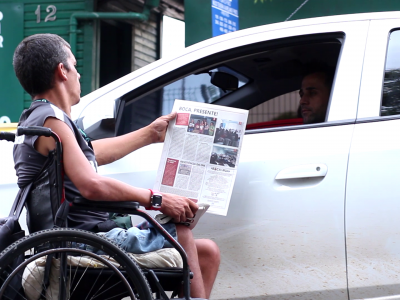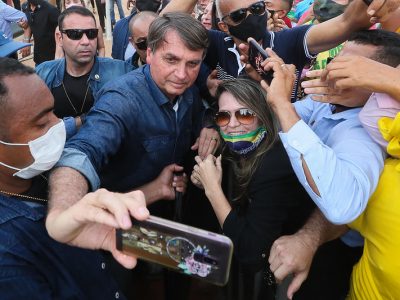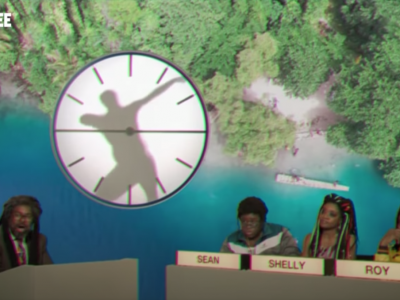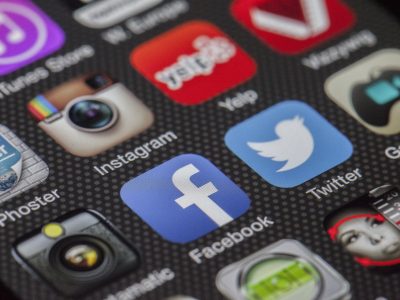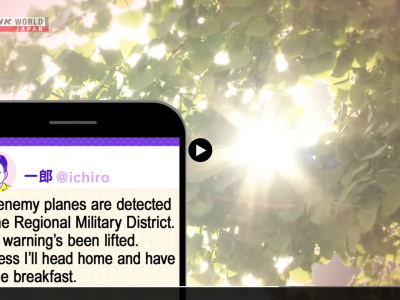Stories about Media & Journalism from August, 2020
Disinformation about Belarus spreads in the Balkans via online portals and social media
Fact-checkers from Serbia and North Macedonia have been detecting and countering disinformation favoring the authoritarian regime in Belarus in the mold of previous propaganda narratives from pro-Kremlin troll armies.
Hong Kong police accused of rewriting history to oppress political dissent
Hong Kong police manipulates narratives of mob violence to accuse political opponents of disturbing the peace and arrest them despite multiple video proofs of their innocence
‘Boca de Rua': The Brazilian newspaper produced entirely by people living on the street
Created in Porto Alegre almost 20 years ago, 'Boca de Rua' is the only member of the International Network of Street Papers entirely created by people living on the streets
President Bolsonaro flooded with questions on social media about unexplained deposits into his wife's bank account
Why, a reporter asked the Brazilian president, was nearly US$16,000 deposited into the bank account of Bolsonaro's wife, Michelle, by their long-time acquaintance Fabrício Queiroz?
Hiroshima Timeline project under fire for racism, fabricated history
An innovative project about the August 1945 bombing of Hiroshima has come under fire for using racist epithets to describe Koreans, political interference, and for potentially fabricating historical source material.
Why women’s rights and digital rights go hand-in-hand on Namibian Twitter
In Nambia, a Twitter campaign to legalize abortion drew waves of attacks against feminist activists, but as a result, parliament has agreed to discuss Nambia's outdated abortion laws.
Jamaicans at home and abroad express shock at ‘outrageous and offensive’ BBC comedy sketch
"This is a harmful piece of work, and its release seems to have completely ignored the current state of the world in which people are tirelessly campaigning for racial equality."
Report roundly criticizes ‘whitewashed’ face of Australian TV news and current affairs
"...the lack of diversity is also reflected in the stories programs make, the issues they examine and the way they examine them."
Islamophobic post on Facebook leads to deadly violence in Bangalore
India experiences another episode of real-life violence triggered by online hate speech.
An earthquake shook Tanzania. A new law prohibits citizens from speaking about it online.
Revised online content regulations in Tanzania prohibit talking about pandemics, natural disasters or politics without government approval. Is it possible to control essential online conversations? If so, at what cost?
‘Hiroshima Timeline’ uses tweets to portray real-time experience of world's first atomic bombing
Three Twitter accounts use an "on-this-day" format to share observations and experiences of daily life from 75 years ago in the months leading up to the August 6, 1945 bombing.
How the murder of musician Hachalu Hundessa incited violence in Ethiopia: Part II
Within an hour of musician Hachalu Hundessa’s assassination, Ethiopians netizens hit social media with scattershot conspiracy theories, hate speech & disinformation campaigns — particularly on Facebook, Twitter and YouTube.
How the murder of musician Hachalu Hundessa incited violence in Ethiopia: Part I
In the wake of musician Hachalu Hundessa's murder, Ethiopia has struggled to come to terms with the violence and turmoil that erupted along ethnic and religious faultlines.
‘Wiki Loves Africa’ 2020 features images of a continent on the move
"Wiki Loves Africa," encourages people to contribute Africa-relevant media to Wikimedia annually around a particular theme to fundamentally change how people both within and outside Africa see the continent.
The chilling tale of mass surveillance and spying in Rwanda
Rwanda justifies its tight control over media freedom, suppression of dissent, and hostility toward opposition as matters of national unity and security.
In the age of misinformation, who holds the power to categorize the ‘truth'?
Over time, the categorization of information can result in the dominance of a single world view, making platforms like Facebook, Twitter and Google the central arbiters of truth.
Moderate globally, impact locally: A series on content moderation in the Global South
''Even as the platforms have grown and spread around the world, the center of gravity of these debates continues to revolve around D.C. and San Francisco.''
In Trinidad & Tobago, the use of Black iconography in Emancipation Day ads backfires
"This ad brings to light greater issues of the way Africans are represented in media and how careless and flippant many media programmers are with African icons, legacy, and symbols."
Digital rights remain under threat in Malawi despite historic win for democracy
Will the change in the country's leadership bring about meaningful changes to ensure that Malawians enjoy human rights in the digital space?
Despite attacks on press freedom, Nicaragua's digital media landscape is still flourishingMedios digitales se desarrollan en Nicaragua pese a represión
At least 24 new media outlets have been created since 2018, and the already established media outlets are adapting to produce multimedia content.Al menos 24 nuevos medios han sido creados y los medios establecidos se han adaptado para producir contenido multimedia.
New Facebook Oversight Board must remove content of notorious Sudan militia
“Despite the harrowing violations, the RSF maintains a presence on social media, most notably Facebook, which has been the main platform for this militia to spread its messages …”

